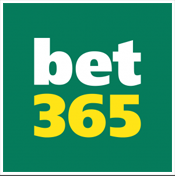An Explanation of Each Way Betting

One of the most common types of wagers offered by bookmakers is what is known as the “each way bet.” It is always made up of two separate bets. One is called the “win bet,” selecting a single horse, side, or player to finish as the outright victor in an event. The other is referred to as the “place bet.” This place bet is for a selection to finish among the top two, three, or four, depending on the event, and it pays out a fraction of the odds to win, typically 1⁄2, 1⁄3 or 1⁄4.
Although each way betting may be applied to a variety of sports, especially ones that involve a tournament format, this type of wagering is most common in horse racing. When making an each way bet on horses, both parts of the stake must be equal. For example, a wager of “five pounds each way on the 11/5 favourite” would mean £5 bet on the selected entry to win the race outright, and an additional £5 wagered on the same horse to finish in the “places,” meaning second, third or fourth. The total cost is £10.
The first portion of this each way bet is quite simple to understand. It yields a return only when the selected entry finishes in first, paying £9 for every £5 wagered, or £9 in winnings plus the original £5 returned. This is exactly the same as betting on the horse to win. If the horse finishes in any position other than first, the £5 will be lost.
Understanding the second part of the bet is a bit more complicated. How much is won depends upon the number of runners starting the race as well as whether it is run as a handicap. When 5~7 runners participate, the place bet pays a return only for a finish in the top two and the yield is one-quarter of the win odds. When eight or more runners compete, the bet pays for a top-three finisher at one-fifth the win odds. However, in handicaps featuring 12~15 runners, the bet pays one-quarter odds for the top three places, and in those with sixteen or more running, it pays for a top-four finisher at one quarter odds.
For the sake of example, if the winning horse chosen led a field of ten in a non-handicap race, the place bet would pay one fifth of the 9/5 odds, or £1.80 plus the £10 returned. What started as £10 wager would amount to a profit of £10.80. But should the selected horse fail by a nose, the £5 win bet would be forfeited and the place bet would still return £1.80 in winnings plus the £5 wager, so the net loss would be just £3.20.
As can be seen, each way betting is a kind of insurance—a hedge against misfortune. Especially when the win odds are 8/1, 10/1, or higher, each betting can return a profit even if the selection comes in second or third, and in some cases even fourth, which allows wagers to be made on long shots with a bit of confidence.
When it comes to sports like football, rugby, tennis, golf, cycling and motor racing, the same principle applies. Each way betting can be used for any sport that features a field of competitors in a tournament or cup format. To do so, simply split the total stake into two equal bets: half to win and the other half to finish in the “places.”
Take, for example, a £5 each way bet on Manchester United to win the Premiership at 8/1 odds. The total stake might be £20, made up of £10 to win and £10 to place in the top three at one-quarter odds. The betting slips issued by bookmakers typically display an E/W box to tick, which makes such wagering quite easy.
If the Red Devils are successful, the win part of the bet will pay 8 x £10 = £80 in winnings in addition to the original £10 stake returned. The place portion will pay out at one-quarter odds, which is 8 x ¼ x £10 = £20 plus the £10 stake returned. The initial £20 wager will have turned into a profit of £100. However, should Manchester United finish as the runner-up, the £10 loss on the win bet will be completely covered by the return on the place bet for a net gain of £10.
In general, each way betting is most successful when the odds are great enough to deliver an overall profit when the selection finishes placed. In this regard, an each way bet will be most appropriate when applied to outright winner betting markets for major tournaments and cup-type events that tend to feature higher odds.

 Go To bet365
Go To bet365
 Bet Credits
Bet Credits
